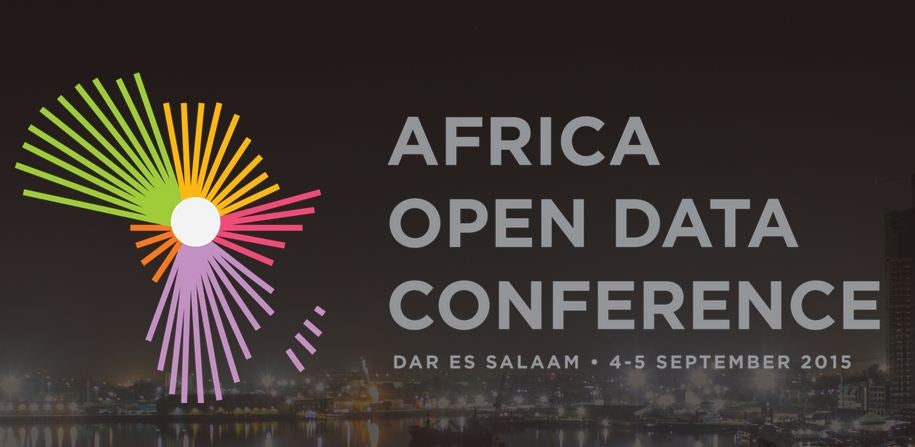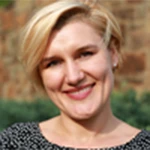
Cross posted from the IC4D Blog
Back in June I rushed to take a front seat at one of the World Bank conference rooms to hear Dr. Hans Rosling speak. We had met years ago in Moldova, and just like last time, his talk was sharp, funny and full of “aha” moments.
He unveiled what the future holds: the global population will almost double by 2100, with Africa—a continent where I have worked for the last five years—leading in explosive population growth between 2015 and 2050.
Today, African governments struggle to deliver basic services to their people—including and particularly to the very poor and marginalized—across sectors, most notably health, sanitation, and education. Food security is likewise a crucial issue for the region, as are so many others: environmental sustainability, disaster risk management, economic development and others.
Back in 2006, Dr. Rosling left us fascinated with his TED talk “The best stats you've ever seen,” where he expressed a hope that publicly funded data can be made open. This is becoming a reality. The World Bank was the first international organization to do so back in 2011.
What’s more, national and subnational governments are opening up their data, which has created myriad avenues and opportunities for line ministries, private sector entrepreneurs, civic technologists, and others to develop applications and e-services that are already generating tremendous value for the citizens. The World Bank has helped more than 60 governments to embark on this journey through a variety of instruments, such as Open Data Readiness Assessment and others.

Open government data is a global phenomenon that has unleashed opportunities and entry points for citizens across low- and middle-income countries to become more active agents of their own development in more ways than we had ever imagined. The recently released Open Data Map highlights a range of open data-driven solutions across health, education, energy, sanitation, and other sectors.
In only a few years, the momentum for Open Data has grown significantly across regions, particularly in Africa. Many countries, including a handful of African nations have already launched national or state-level initiatives—such as Open Data portals—and are actively incentivizing the private sector to make good (and civic-oriented) use of open government data. As these initiatives grow in magnitude, participation and complexity, new opportunities are arising for cross-border collaboration and dialogue around best practices and inspiring stories.
There is a growing recognition that Open Data is starting to play a significant role in development and is instrumental in the context of a broader conversation around a Data Revolution for Sustainable Development Goals (SDGs).
African nations have a unique opportunity to capitalize on the promise of Open Data. The upcoming first regional Africa Open Data conference, (which will take place from September 2-5, 2015 at Nyerere International Conference Centre in Dar Es Salaam, Tanzania) will present an exciting avenue for African nations to showcase their achievements, exchange lessons learned, grow new relationships, network with Open Data practitioners, and bring Open Data-driven innovations home with them at the conclusion of this conference.
This four-day journey will start with an “Open Data Community Day” and “Open Data Skills Day” and will be officially opened on September 4 by His Excellency President Kikwete, President of the United Republic of Tanzania. The conference will feature a world-class set of Open Data experts to ensure a meaningful transfer of knowledge and to catalyze a productive conversation about opportunities to extend open data’s potential impact in the region.
Strive Masiyiwa, a well-known humanitarian and one of Africa’s most successful businessmen, said: "Whether you’re a farmer, builder or engineer, the opportunities are equal: Just add a little innovation.” Let’s put our minds together in Dar es Salaam to find innovative ways to use Open Data to improve the lives of Africa’s rapidly growing population.
African nations have a unique opportunity to capitalize on the promise of Open Data. The upcoming first regional Africa Open Data conference, (which will take place from September 2-5, 2015 at Nyerere International Conference Centre in Dar Es Salaam, Tanzania) will present an exciting avenue for African nations to showcase their achievements, exchange lessons learned, grow new relationships, network with Open Data practitioners, and bring Open Data-driven innovations home with them at the conclusion of this conference.
This four-day journey will start with an “Open Data Community Day” and “Open Data Skills Day” and will be officially opened on September 4 by His Excellency President Kikwete, President of the United Republic of Tanzania. The conference will feature a world-class set of Open Data experts to ensure a meaningful transfer of knowledge and to catalyze a productive conversation about opportunities to extend open data’s potential impact in the region.
Strive Masiyiwa, a well-known humanitarian and one of Africa’s most successful businessmen, said: "Whether you’re a farmer, builder or engineer, the opportunities are equal: Just add a little innovation.” Let’s put our minds together in Dar es Salaam to find innovative ways to use Open Data to improve the lives of Africa’s rapidly growing population.


Join the Conversation